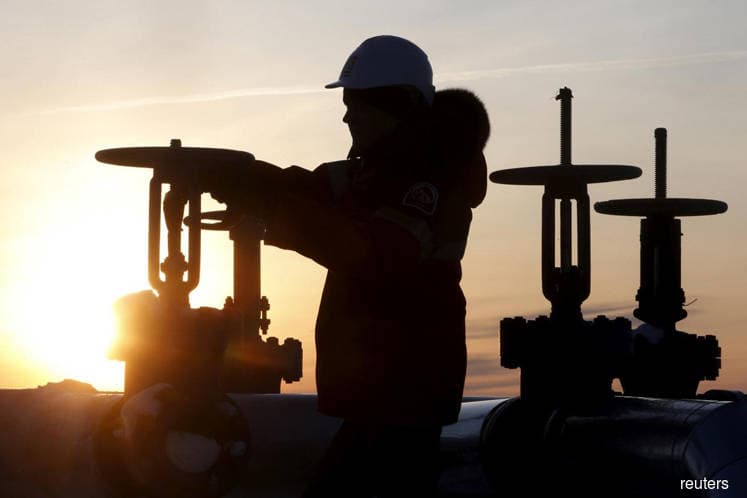
This article first appeared in The Edge Malaysia Weekly on April 30, 2018 - May 6, 2018
OFFSHORE support vessel operators unanimously agree that Petroliam Nasional Bhd (Petronas) contracts — particularly the Integrated Logistics Control Tower (ILCT) project — are crucial for the industry, but differ on how present delays are hurting companies.
In the spotlight is the ILCT contract, which analysts say will require as many as 110 vessels for 23 packages, on a three-plus-two-year basis. In a nutshell, the contract value will run into billions of ringgit.
The contract, which was to have been awarded last December, was pushed to March.
Now, it appears to have been postponed to after the 14th general election on May 9.
Some opine that Petronas is holding back the award to protect existing players as well-connected marine spread operators are likely to use the election as an opportunity to jostle for contracts in return for support, which could lead to some of the players losing out.
“Petronas is protecting us, or else the opportunity will be gone for us [to secure the contracts] … yes, we are suffering, but I do believe Petronas is trying to protect us,” says one industry executive.
This executive runs a publicly traded outfit, which is currently saddled with debt.
His views are understandable as there was quite an outcry last November when Petronas’ exploration unit, Petronas Carigali Sdn Bhd, awarded maintenance, construction and modification service contracts in five packages for its offshore facilities in Peninsular Malaysia, Sabah and Sarawak to six local contractors. The companies were Carimin Petroleum Bhd, Dayang Enterprise Holdings Bhd, Deleum Bhd, Petra Energy Bhd, Sapura Energy Bhd and its joint-venture partner, Borneo Seaoffshore Engineering Sdn Bhd.
Some of the companies that did not secure jobs questioned the merits of the award.
A senior executive from a rival offshore support service company says Petronas should consider the industry’s plight and award the jobs as soon as possible.
“Petronas is the national oil company. We are suffering, we have high debt levels. We are dependent on Petronas and they are sitting on the awarding of jobs. The least they can do is award the jobs fast, [and help] ease our burden,” he says, adding that Petronas should be above politics.
Another viewpoint is that delaying job awards is quite normal. But the problem is that the industry is reeling from a rout of oil prices.
An analyst from a local brokerage says the average utilisation rate for offshore support vessel companies is in the region of 40% to 50%.
Consequently, many of the oil and gas marine spread players have been hit badly.
Companies such as Alam Maritim Resources Bhd have sought assistance from the Corporate Debt Restructuring Committee of Bank Negara Malaysia to formulate restructuring schemes.
Alam Maritim suffered a net loss of RM147.18 million on the back of RM159.85 million in sales for the year ended December 2017.
“The players have no choice but to depend on Petronas. They (offshore support players) can’t go abroad due to cabotage policy regulations, so they have to wait,” the analyst says.
Cabotage policy generally prevents foreign-owned vessels from operating in the waters of a country and thus hinders Malaysian-flagged vessels from securing jobs abroad.
Some of the companies that have been impacted are government-linked ones. For instance, Icon Offshore Bhd, which has a fleet of 32 vessels, is a 42.57% unit of Yayasan Ekuiti Nasional Bhd.
For its financial year ended December 2017, Icon posted a net loss of RM59.78 million on the back of RM204.62 million in revenue.
As at end-December 2017, its cash and bank balances amounted to RM48.07 million. On the other side of the balance sheet, its current liabilities stood at RM334.63 million and long-term borrowings amounted to RM350.10 million.
Strengthening oil prices have only exacerbated the growing frustration among marine spread players.
Last week, Brent crude crossed the US$75 per barrel mark, its highest level in 3½ years, largely over fears that the US may impose sanctions on Iran, resulting in heightened geopolitical tensions in the Middle East.
Since last August, oil prices have been trending up and have gained more than 23% over the past six months to current levels of just below US$75 per barrel.
Generally, the outlook for oil has been bullish. For instance, BMI Research pegs prices at an average US$75 per barrel in 2019, and increasing to US$78 in 2020.
Goldman Sachs in February forecast that Brent crude would hit US$75 a barrel by next month and US$82.50 within six months, raising previous estimates of US$62 per barrel for both periods.
The bullish sentiment aside, a significant number of oil and gas counters hit record lows this month. For instance, Pantech Group Holdings Bhd reached a 52-week low of 51 sen on April 6, although it is a profitable company.
Petra Energy Bhd — which, via a collaboration with CEC International Ltd, is involved in Small Field Risk Service Contract developing and producing petroleum from the Kapal, Banang and Meranti small fields offshore Peninsular Malaysia — fell to an all-time low of 58 sen on April 5.
Others that have been beaten down include Perdana Petroleum Bhd — which sank to a historical low of 20 sen on April 9 — and Sealink International Bhd, which dropped to its lowest of 12 sen in early February. Sealink is currently trading at below 15 sen. Barakah Offshore Petroleum Bhd fell to its lowest of 22 sen on April 4 and Icon hit 18 sen on April 6.
Save by subscribing to us for your print and/or digital copy.
P/S: The Edge is also available on Apple's AppStore and Androids' Google Play.